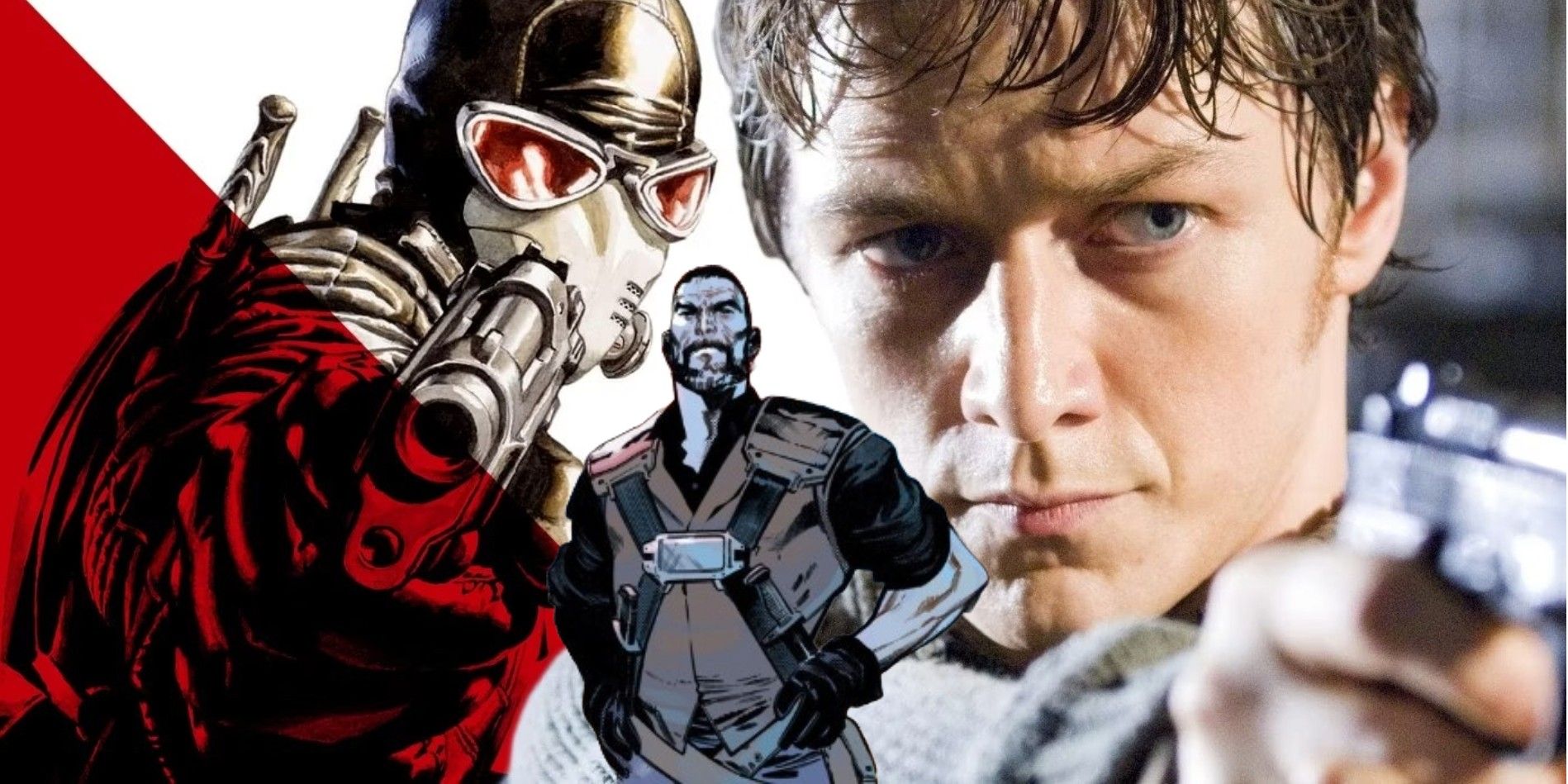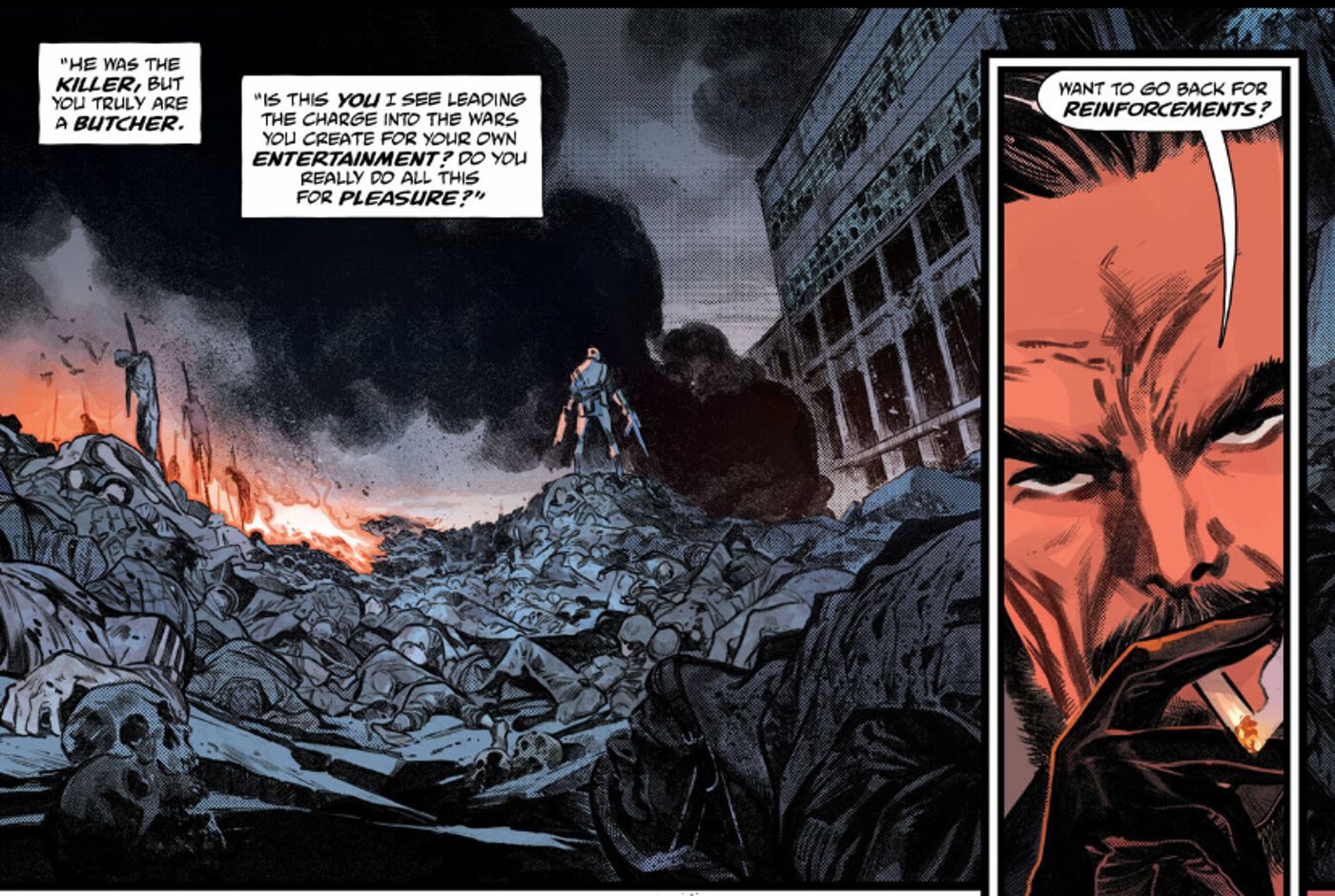Summary
- Big Game #5 concludes Wesley Gibson’s character arc, which began in 2003’s Wanted, in the process revealing the deeper meaning behind the original series’ title.
- The series challenges the surface-level interpretation of Wanted, highlighting the deeper relevance of Wesley Gibson’s identity and self-actualization to both that series and its follow-up, Big Game.
- Wesley’s embrace of his villainous nature and “delight in death” ultimately stemmed from his negative self-image and arrogance at having escaped the life of a regular person.
Many elements of Mark Millar’s Wanted have been misinterpreted by readers over the years – with Millar’s current Big Game series working diligently to correct some of those misconceptions; in the series’ climactic moments, a deliberate dialogue choice makes the meaning of the earlier series’ title shockingly obvious, revealing the surface-level interpretation of Wanted to be hiding much deeper relevance to its central character, Wesley Gibson.
Big Game #5 – written by Mark Millar, with art by Pepe Larraz – provides a dramatic conclusion to more than just the series; with the death of Wesley Gibson at the hands of Hit-Girl, the character arc that began in 2003’s Wanted is not only completed, but comes full circle.
Wanted was the story of Wesley Gibson discovering and embracing his identity, realizing his potential as more than an ordinary person, as a super-criminal. Moments before he dies in Big Game, Wesley declares, “I’m finally the guy I always wanted to be,” in effect tying a bow on his narrative journey.
“Big Game” Completes Wesley Gibson’s Journey From “Wanted”
Released twenty years ago, Wanted introduced readers to Wesley Gibson, who in turn was introduced to the Fraternity of Super Criminals, an organization once led by his mysterious father – which it was Wesley’s destiny to one day take control of himself. Of course, the overt meaning of the series’ title relates to the character’s entry into the criminal underworld; Wanted is, however, above all else, a story of self-actualization – even if the self-actualized Wesley Gibson turned out to be the most heinous representation of humanity’s worst potential. The character’s final lines of dialogue in Big Game #5 reveal this was all the character was ever truly motivated by.
Right up to his fall, Big Game depicted Wesley at the top of his game – technologically enhanced to be the ultimate killer, ruling over the Fraternity of Super-Criminals, who in turn secretly rule the entire world. This new context made it clear, if it wasn’t already, that Wanted was a supervillain origin story. The arc of that series hinged on Wesley rejecting the life of an “ordinary” individual, in order to ascendancy over them. Shortly before his demise in Big Game #5, Wesley’s temporary ally, Diabolos the Sorcerer, sums up the character’s trajectory in Wanted and the subsequent interval of years:
I can see the old you in there, Wesley Gibson. An office drone working in a cubicle. A nobody scared of his own reflection. But everything soft has been beaten from you now. You have a heart of steel that has been forged in fury and a delight in death that would make even your father quiver. He was the Killer, but you are truly a Butcher. Is this you I see leading the charge into the wars you create for your own entertainment? Do you really do all of this for pleasure?
As it turns out, this level of infamy was all Wesley ever wanted.
Wesley Gibson’s Origin Gave Him What He Wanted; In Big Game He Paid The Price
The look of satisfaction on Wesley’s face in response to Diabolos’ question, contrasted with the image of him standing on a mountain of skulls, is one of many outstanding visual moments from artist Pepe Larraz throughout Big Game. Later in the issue, his final line of dialogue makes it explicitly clear that the character has no regrets – as he triumphantly declares that he is fine dying in that moment, Hit-Girl brutally guns him down, but her dismissive one-liner following the kill shot speaks to the great tragedy of Wesley’s arc: his evil was always motivated by his core weakness.
Wesley’s negative self-image in Wanted was what made him unable to reject the temptation of life as a super-criminal, and his later “delight in death” was about, in some ways, punishing those individuals unable to escape the life of a regular person like he did – even as he and his Fraternity worked to keep them stuck in those lives. His ultimate death, and spiritual death in the afterlife of the Millarverse, are the only endings for a character who had so truly committed to villainy, and on his way out, Mark Millar made sure to add one more layer of meaning to the title of Wesley’s origin series, Wanted.
Big Game #5 is available now from Image Comics.

